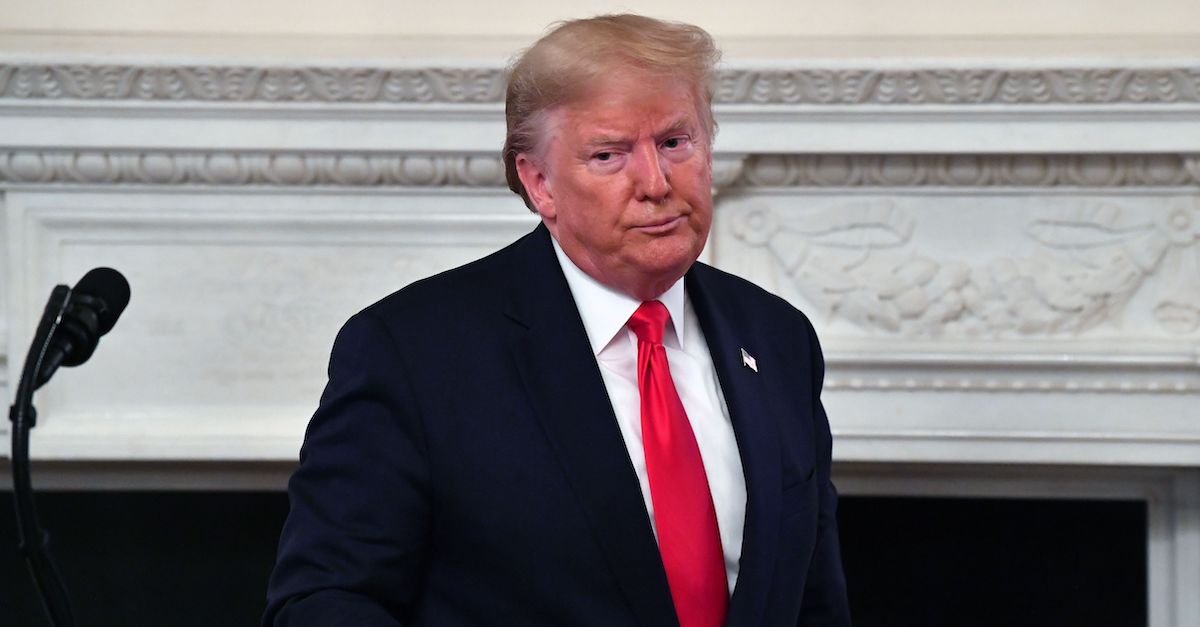
In a move that legal experts are calling “blatantly unconstitutional,” President Donald Trump on Tuesday signed a memorandum directing his administration to exclude undocumented immigrants from the Census population count data used to allocate federal funds and congressional representation.
Under Section II of the Fourteenth Amendment of the U.S. Constitution, the federal government is required to reapportion congressional seats by “counting the whole number of persons in each state” every 10 years in the form of the U.S. Census. That data is also used in the distribution of trillions of federal dollars and in the redrawing of state and local voting districts.
“Including these illegal aliens in the population of the State for the purpose of apportionment could result in the allocation of two or three more congressional seats than would otherwise be allocated,” the Trump memo stated. “The Constitution does not specifically define which persons must be included in the apportionment base. Although the Constitution requires the ‘persons in each State, excluding Indians not taxed,’ to be enumerated in the census, that requirement has never been understood to include in the apportionment base every individual physically present within a State’s boundaries at the time of the census.”
But after conservatives attempted to draw district lines based only on the number of people eligible to vote, the U.S. Supreme Court in 2016 unanimously ruled that “the Framers of the Constitution and the Fourteenth Amendment comprehended, representatives serve all residents, not just those eligible or registered to vote.”
“In other words, the basis of representation in the House was to include all inhabitants—although slaves were counted as only three-fifths of a person—even though States remained free to deny many of those inhabitants the right to participate in the selection of their representatives. Endorsing apportionment based on total population, Alexander Hamilton declared: ‘There can be no truer principle than this—that every individual of the community at large has an equal right to the protection of government,’” Justice Ruth Bader Ginsburg wrote for the court in Evenwel v. Abbot.
Efforts to keep immigrants in the country illegally off of the total Census count have been pushed by Republican strategists because they would eliminate largely Hispanic populations and thereby skew voting districts to be more Caucasian.
The administration previously attempted to add a citizenship question on the official 2020 Census questionnaire – a move experts said would discourage minority populations from responding. However, the Supreme Court last year blocked the move, reasoning that the official rationale for including the question – enforcing the Voting Rights act – seemed “contrived.” A lower court said the rationale was “arbitrary and capricious.”
A slew of legal experts immediately decried the president’s order, with many unambiguously predicting that it would meet a similar fate in the courts.
“I think the Donald Trump view is: ‘I can look like I’m trying to do something by stoking anti-immigrant fervor, and if I lose in court then, I just stoke anti-court fervor too,’” Joshua Geltzer, the director of the Institute for Constitutional Advocacy and Protection at Georgetown, told the New York Times Tuesday.
“It should be legally impossible as well as factually difficult to do,” he said, noting that the census began in March and is near completion.
Director of the ACLU’s Voting Rights Project Dale Ho, who successfully argued last year’s citizenship question case before the Supreme Court, similarly said the order was a “patently unconstitutional” attempt to intimidate immigrant communities from participating in the census.
“The Constitution requires that everyone in the U.S. be counted in the census. President Trump can’t pick and choose,” Ho said in a statement. “He tried to add a citizenship question to the census and lost in the Supreme Court. His latest attempt to weaponize the census for an attack on immigrant communities will be found unconstitutional. We’ll see him in court, and win, again.”
Many other legal scholars weighed in with comparable assessments of the order.
Constitutional expert and University of Texas law professor Steve Vladeck called the order “blatantly unconstitutional,” while immigration attorney Aaron Reichlin-Melnick referred to it as “insultingly unconstitutional.”
Former DOJ Civil Rights attorney Sasha Samberg-Champion and former federal prosecutor Elie Honig:
https://twitter.com/ssamcham/status/1285643232945135617?s=20
See below for the full order
Memorandum on Excluding Undocumented by Law&Crime on Scribd
[image via NICHOLAS KAMM/AFP via Getty Images]